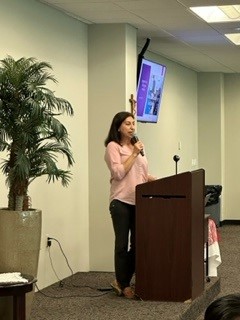Ministerio Hispano
Celebraciones de Misas en la Archidiócesis de Seattle
Eventos
Es importante conocer los datos estadísticos, para comprender mejor la historia y los planes pastorales para el futuro de nuestra Iglesia.
En estos enlaces puedes encontrar información valiosa y útil: U.S. Conference of Catholic Bishops' Hispanic/Latin American Affairs' Demographics2020VKeyStatistical Data for the Archdiocese of Seattle - Spanish)Estadísticas demográficas, sociales y religiosas clave de la Archidiócesis de Seattle 2024 Encuesta Diocesana (Edición en Español)
El Código de Derecho Canónico establece el derecho de los católicos a formar asociaciones de laicos. Los movimientos eclesiales laicales, para constituirse, deben contar con la aprobación de la Santa Sede, cumplir los requisitos y respetar las normas correspondientes. La autoridad competente dentro del Vaticano es el Consejo Pontificio para los Laicos. CONSEJO PONTIFICIO PARA LOS LAICOS El Consejo Pontificio para los Laicos es el dicasterio que asiste al Pontífice en todas las cuestiones que tienen que ver con la contribución que los fieles laicos aportan a la vida y a la misión de la Iglesia, tanto a título individual como a través de los diversos grupos constituidos en su seno. Leer más ASOCIACIONES Y MOVIMIENTOS Una parte consistente del trabajo del Consejo Pontificio para los Laicos está enunciada en el art. 134 de la Constitución Apostólica Pastor Bonus: "En el ámbito de su competencia, el Consejo se ocupa de todo lo que concierne a las asociaciones laicales de fieles; erige, pues, las que tienen carácter internacional y aprueba o reconoce sus estatutos (...); por lo que se refiere a las Terceras Órdenes, se ocupa (...) de lo que concierne a su actividad apostólica". La Exhortación Apostólica Christifideles laici da una idea del alcance de esta tarea cuando señala "la riqueza y versatilidad de los recursos que el Espíritu alimenta en el tejido eclesial (...) y la capacidad de iniciativa y generosidad" que los laicos demuestran en este campo, reconociendo "una nueva era asociativa de los fieles laicos" en la que "junto al asociacionismo tradicional, y a veces desde sus mismas raíces, han germinado nuevos movimientos y asociaciones (...) ".
| Información de contacto | ||
| Cursillos de Cristiandad | Roberto Urrutia | roberurrutia91@gmail.com |
| Encuentro Matrimonial Mundial Seattle | Alberto y Mariana Lopez | marianAlberto07@outlook.com |
| Movimiento Familiar Cristiano Católico | Rufino y Noemi Jaimes | noemi.rufinoo@hotmail.com |
| Renovación Carismática Católica | Abel Sánchez | rcchseattle@gmail.com |
| CERS | Rogelio Palacio | palaciosrogelio20@gmail.com |
| Apostolado de la Cruz | Claudia Galindo | cgalindo357@hotmail.com |
| Adoración Nocturna | Gilberto Chirino | gilberto.chirino@gmail.com |
Haz clic en cada imagen para saber más sobre los movimientos. 


Infórmate sobre la Conferencia Católica del Estado de Washington (WSCC), una institución que se formó en 1976 para fomentar una voz católica unificada en cuestiones de política pública. Sitio web del WSCC (en español)
Visita el sitio web de la USCCB aquí.
Visita el sitio web del Vaticano https://www.vatican.va/content/vatican/en.htmlhere Visita Noticias del Vaticano aquí
























Síguenos en las redes sociales
Quiénes somos
Edwin Ferrera
Director del Ministerio Hispano edwin.ferrera@seattlearch.org Click aquí para conocer al Equipo del Ministerio Hispano

